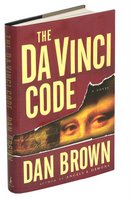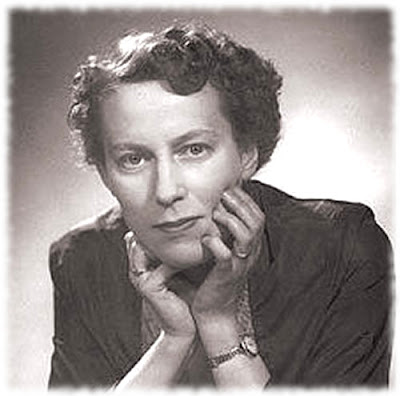The Da Vinci Code's hidden meaning
 The best selling novel The Da Vinci Code certainly isn't my taste in literature. But the current London High Court case in which the book's author Dan Brown is the defendant (via his UK publisher Random House) has an importance far beyond the literary value of the book. Authors Michael Baigent and Richard Leigh have brought the action, claiming Brown stole "the whole architecture" of research used in their 1982 book The Holy Blood and the Holy Grail.
The best selling novel The Da Vinci Code certainly isn't my taste in literature. But the current London High Court case in which the book's author Dan Brown is the defendant (via his UK publisher Random House) has an importance far beyond the literary value of the book. Authors Michael Baigent and Richard Leigh have brought the action, claiming Brown stole "the whole architecture" of research used in their 1982 book The Holy Blood and the Holy Grail.The implications are far-reaching if the High Court rules in favour of Baigent and Leigh. They are not claiming that Brown copied parts of their work verbatim. Instead they are suing because they allege that Brown took the output of their own research, remixed it and published it in a different form as The Da Vinci Code.
On An Overgrown Path has repeatedly pointed out that remixing is a central component of creativity, and is used in everything from blogs (part of this article is a remix of yesterday's Observer article by Nick Cohen) to Shostakovich's Fifteenth Symphony. Forget about the effect of Mr Justice Smith's decision on royalty rich Dan Brown. A High Court ruling that copyright gives protection against remixing, as well as wholesale plagiarism, could put a lot of genuine artists, from Bach to Berio, on the wrong side of the law.
Report broken links, missing images and other errors to - overgrownpath at hotmail dot co dot uk
Remix resources On An Overgrown Path include Culture is remix * Guilty of remix? * Wikipedia is remix * Great minds think alike .. *










Comments
Actually I don't even believe that. The remixing argument is also valid.
Another argument I've seen regarding this case is that all the authors believe the premise to be true. How can there be copyright on "The Truth"
And don't forget Hyperion went into their appeal against the High Court ruling on the Sawkins copyright case convinced they couldn't lose ...
Some observers suspect a publicity stunt, but Joel Rickett, deputy editor of the Bookseller, said this was unlikely: 'From the outside it looks like a long shot, but to get to this stage I'd guess they must have spent hundreds of thousands of pounds and got top legal brains to study it. They must really believe they've got a case.
--RC of strangeculture.blogspot.com
Look, they're even on An Overgrown Path!
Oxford dons alerted to plagiarism
Dons at Oxford University are being urged to be vigilant against plagiarism among students.
The university's senior proctor, Professor Alan Grafen, said extensive copying of work would undermine the value of an Oxford degree.
Professor Grafen said all students should have to sign an affidavit for every piece of work they submitted.
But he denied newspaper reports that plagiarism among students at Oxford University was widespread.
Writing in Oxford Magazine, an in-house publication, Professor Grafen blamed schools for creating a culture of work "cobbled together from the internet".
He said students were arriving at university having had the practice of plagiarism endorsed.
He called for all new students at the university to have to attend a lecture on plagiarism, outlining exactly what was not acceptable.
The Telegraph newspaper claimed internet plagiarism at the university was "rife".
But Professor Grafen told the BBC news website: "I would not, and did not, say that plagiarism is 'rife' at Oxford."
He said the university had dealt with just 10 cases out of a total of 17,660 students.
"I would be surprised if Oxford was not near the bottom of national and world rankings for the incidence of plagiarism.
"It is a measure of the care we take with teaching and examining that my article was a response to such a small number of cases."
Earlier last year, a report by the higher education technology organisation, Jisc, warned that student plagiarism was likely to become more common.
The report, Deterring, Detecting and Dealing with Student Plagiarism, suggested plagiarism was associated with higher levels of stress among students.
The need to take on paid work, heavier coursework load or lack of personal organisation skills may all be factors, the report said.
And a report by the Qualifications and Curriculum Authority (QCA) published in November found GCSE pupils had been copying each others' work and downloading essays from the internet.
It warned that copying essays from the internet could not be controlled. Now the Education Secretary, Ruth Kelly, has called for an urgent review of the use of coursework in GCSE subjects.
Story from BBC NEWS:
http://news.bbc.co.uk/go/pr/fr/-/1/hi/education/4804734.stm